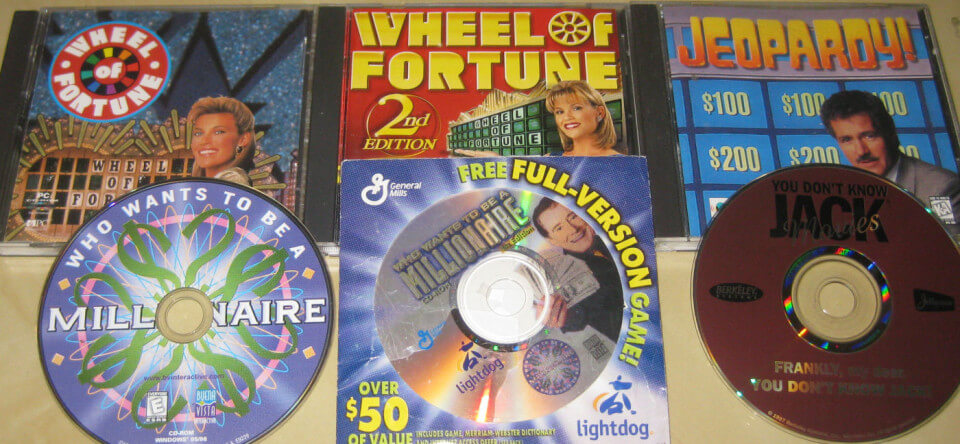Ricochet is the best place on the internet to discuss the issues of the day, either through commenting on posts or writing your own for our active and dynamic community in a fully moderated environment. In addition, the Ricochet Audio Network offers over 50 original podcasts with new episodes released every day.
 Pat Sajak and Common Culture
Pat Sajak and Common Culture
 Dave Carter alerted me to this unwarranted controversy surrounding Ricochet contributor Pat Sajak.
Dave Carter alerted me to this unwarranted controversy surrounding Ricochet contributor Pat Sajak.
“As we lose our common culture, one odd side effect: it’s harder to find puzzles on Wheel that are fair to all,” Sajak tweeted out on June 1.
Here is Sajak’s Twitter feed, full of his signature wit and wisdom.
Some have apparently interpreted Pat’s comment in light of his politics, believing it a veiled jab at Democrats or progressives. I think he was making a fairly mundane and yet striking observation about a cultural loss, one that creates difficulty for a game show that tries to unite generations. We’ve lost the cultural touchstones that older and younger generations once shared.
It’s normal for the elderly to watch or listen to their grandchildren and encounter pop culture references, idioms, beliefs, or customs that seem strange. Societies are forever changing. In modern America, during this era of rapidly advancing technologies and instant interactions between distant peoples, those changes can be especially daunting.
But in most societies (please correct me if I’m wrong), the generations spend considerable time together. So they develop a wealth of common knowledge and experience.
Some of this knowledge is history. Stories are told, questions are asked, one anecdote leads to another, and so the elder’s experiences are connected with the child’s experiences. History gains a personal aspect. National histories are placed into a context of family histories.
Intertwined with those histories are pleasures, passtimes, and dramas — the little things that color our lives. The generations might play sports together, play board games, piece together puzzles, watch TV or films together, or listen to music together. When the children become parents, they can reminisce about the good times and share those experiences with the next generation.
Then there are pragmatic skills, like mechanical know-how, cooking, or basic carpentry. Some needs and challenges change from generation to generation, but some remain. Why figure out best practices all over again when one can learn from family?
And there’s the rub.
Why do Sajak’s coworkers on Wheel of Fortune struggle to write for modern contestants and audiences? Because knowledge and experiences in modern America are more scattered and individualized than they used to be. Family norms — and much else — have changed.
I was born in 1980. The only reason I’m as familiar as I am with black-and-white movies and TV shows is because my parents and uncles invited me to watch with them, just as they did with their parents when they were children. The main reason I’m familiar with centuries-old symphonies or jazz from the 1940s is because my elders made me listen. We can share references to Lucille Ball, the Marx Brothers, Jack Benny, Frank Sinatra, Louis Armstrong, Vivaldi, Wagner, Copeland, Michelangelo, Norman Rockwell, and many more artists because we experienced their works together.
My parents considered that an essential part of their role as parents. They didn’t just teach us reading, writing, and arithmetic. They taught us culture. They taught us how to appreciate the arts and games they grew up with, even if we preferred more modern fare. Yes, even a simple game of horseshoes or dominoes can be important. They told us about great athletes, pioneering companies, and various movers and shakers in American society before our time. Such things strengthen the bonds between generations and instill a sense of continuity.
Many people of my generation, and later ones, don’t have that shared knowledge and experience. They didn’t have to gather with their families for dinner or join family outings — if their parents were even available for socialising at all. They were not expected to participate in old traditions or family activities. They roamed free or alone. So their knowledge is similarly separated.
Perhaps online interactions offer a way back to unity between young and old. Certainly, many online games and forums like Ricochet enable us to learn from each other and gain common ground. Is it enough?
In what ways might families and neighbors reestablish the connection that seems to have been lost since Wheel of Fortune began 40 years ago? (Need I add that Pat’s show is another American touchstone?)
Published in Culture, Entertainment, General, History, Literature



You get a pass. I find in these discussions a general assumption of “The culture I like is sacred” where anything else just doesn’t matter. I used bronyism as an example of a bridge too far, but there are other options. Watch Ballet clips on youtube. Listen to an hour of polka on Pandora. Grab a pulp military science fiction novel from Baen (they have a bunch of free ones.)
Remember how Charles Murray in his book Coming Apart had a quiz to tell you how in touch with fishtown you were? Anyone else take that as a challenge to raise their scores? Here’s the easy step: Go out and buy a case of mass-market beer. Then drink it.